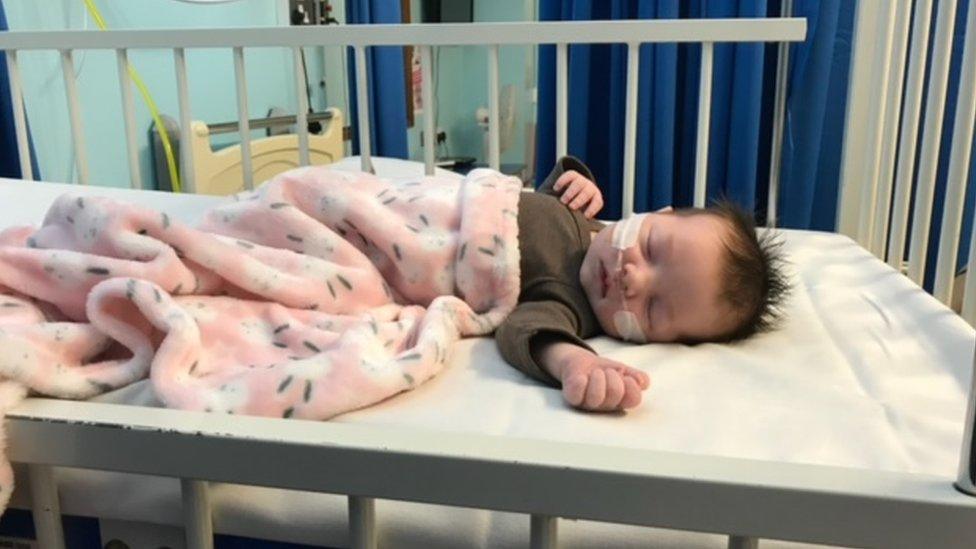Southampton hospital hails winter virus jab trial for babies
- Published
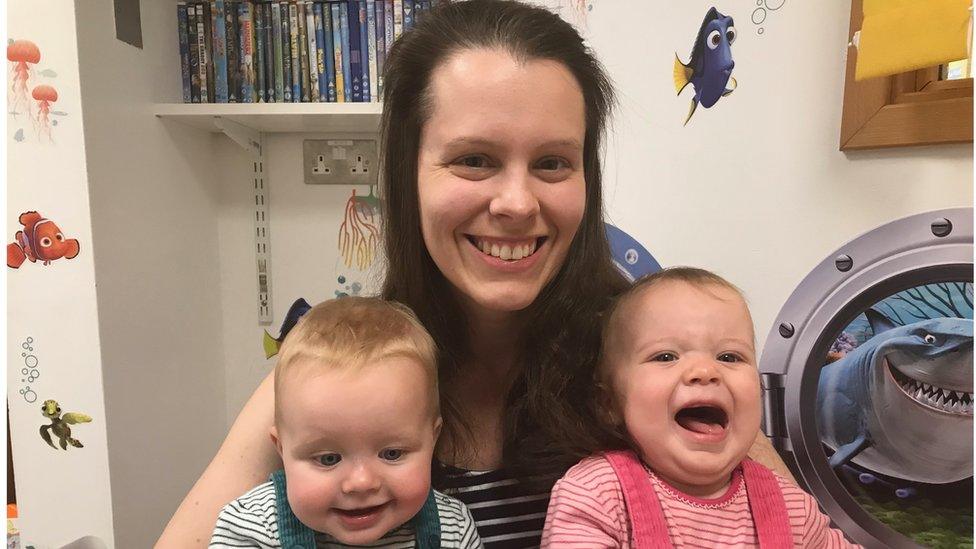
Kate Parker said she enrolled her twin daughters in the study to protect future generations
A trial of a winter virus jab for babies shows it can ease the burden on the NHS, a hospital has said.
Respiratory syncytial virus (RSV) is one of the main causes of hospitalisation in children under five.
The study involving 8,000 babies in Europe showed the drug nirsevimab lowered RSV-related hospitalisations by 83%, drug firm Sanofi said, external.
University Hospital Southampton (UHS), which took part in the study, said it was a "fantastic result".
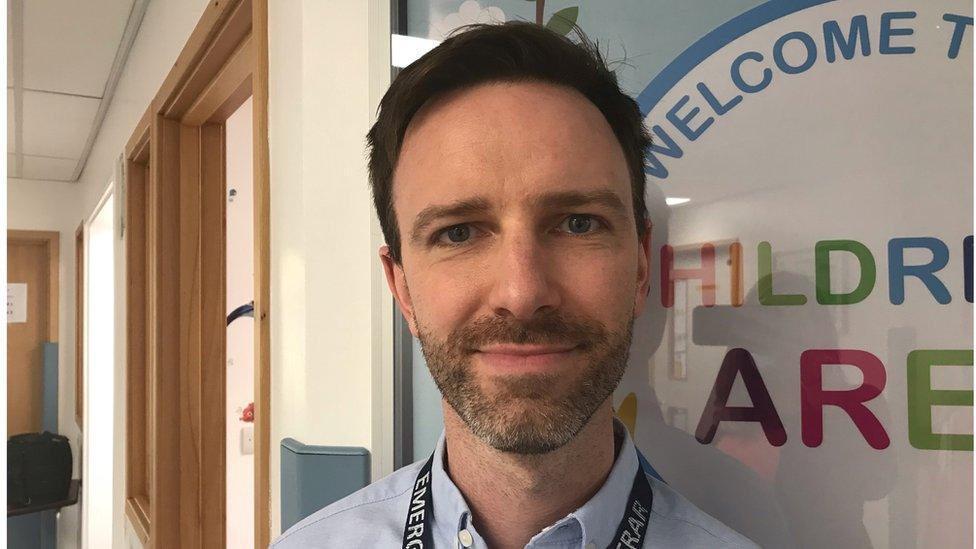
Dr Alasdair Munro said RSV was one of the biggest burdens placed on the NHS
Children up to the age of one in the UK, France and Germany were involved in the Harmonie trial.
Kate Parker's twin daughters were studied in Southampton, with one being given nirsevimab and the other not. Both remained well over the winter.
She said: "It feels good to know that they've been part of it and that they can change our future generation's health.
"There's a lot of children that can get RSV and end up in hospital, so I didn't want that to happen."

What is RSV?
Respiratory syncytial virus, or RSV, is one of the common viruses which cause coughs and colds
More than 60% of children have been infected by their first birthday and that rises to 80% by the age of two
For most people it causes a mild respiratory illness
For a small number of people, who are at risk of more severe respiratory disease such as the very young or elderly, RSV might cause pneumonia or even death
Symptoms include a runny nose, sneezing, nasal congestion, a cough and sometimes a fever
Sources: UK Health Security Agency (UKHSA), NHS, House of Lords Library

UHS paediatric registrar Alasdair Munro said: "RSV is one of the biggest burdens placed on the NHS.
"Every winter we have whole bays that are just full of babies with RSV because they need support with their breathing or support with their feeding.
"Being able to have an intervention that significantly reduces the need for hospitalisations of children would be a huge relief."
He said he hoped regulators would now determine whether the drug, which has already been approved in the UK, could be given to children this winter.
Dr Katrina Cathie, Southampton study lead, said: "This is a fantastic result, and I'd like to say a big thank you to all the families who took part across our region.
"Through your help, we've been able to show nirsevimab can protect babies against serious RSV infections requiring hospital care."
The single antibody shot helps to stop infants getting chest infections, such as pneumonia, for about six months, a previous study has suggested.
Medical commentators said the price of nirsevimab, from Sanofi and AstraZeneca, would be crucial in determining its future use.

Follow BBC South on Facebook, external, Twitter, external, or Instagram, external. Send your story ideas to south.newsonline@bbc.co.uk, external.
- Published19 February 2023
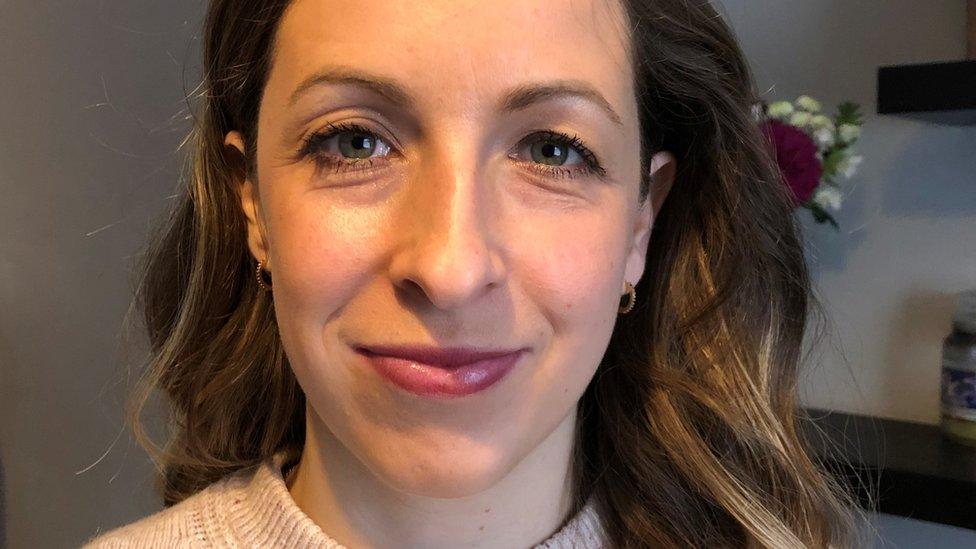
- Published24 November 2022
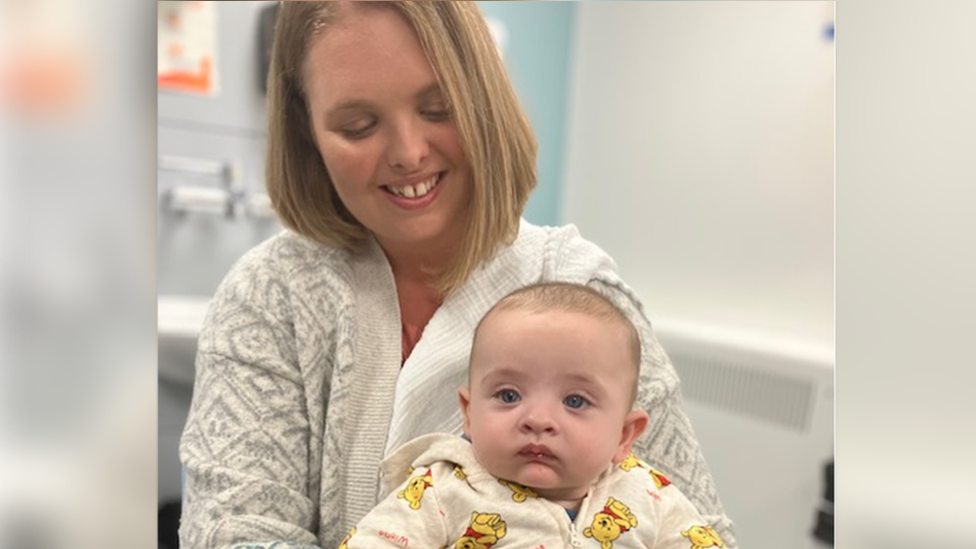
- Published10 November 2022
